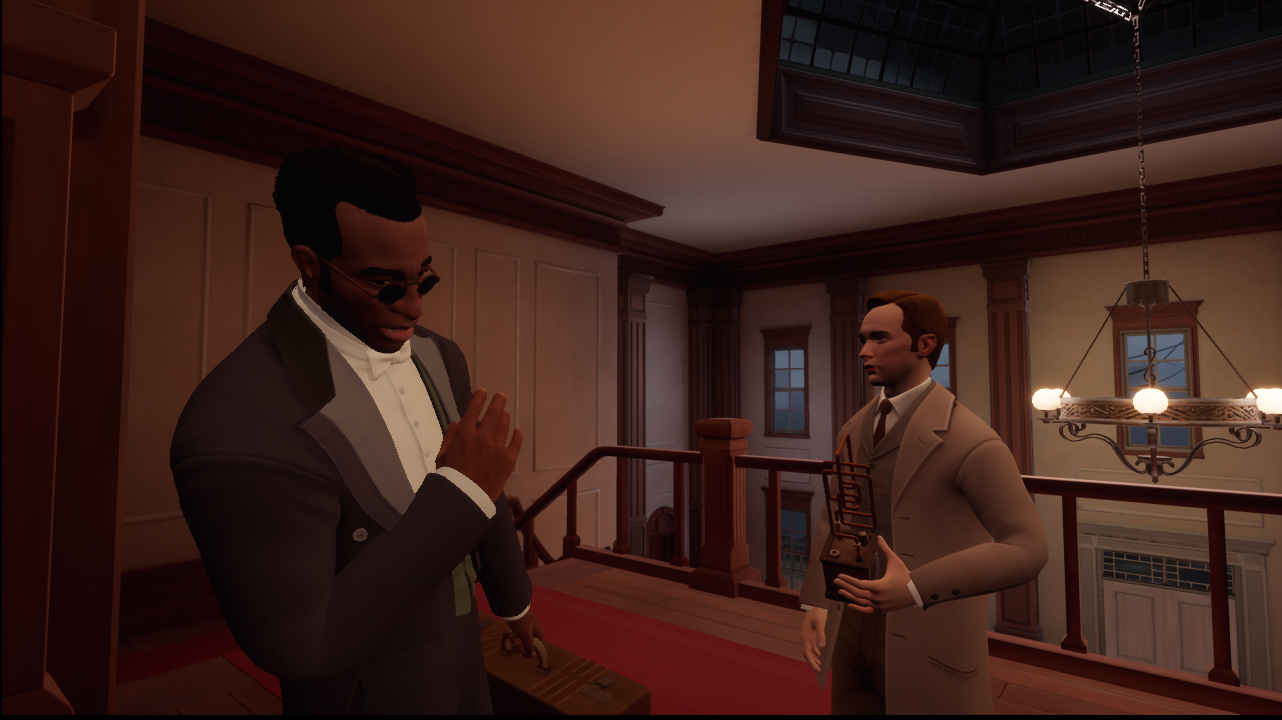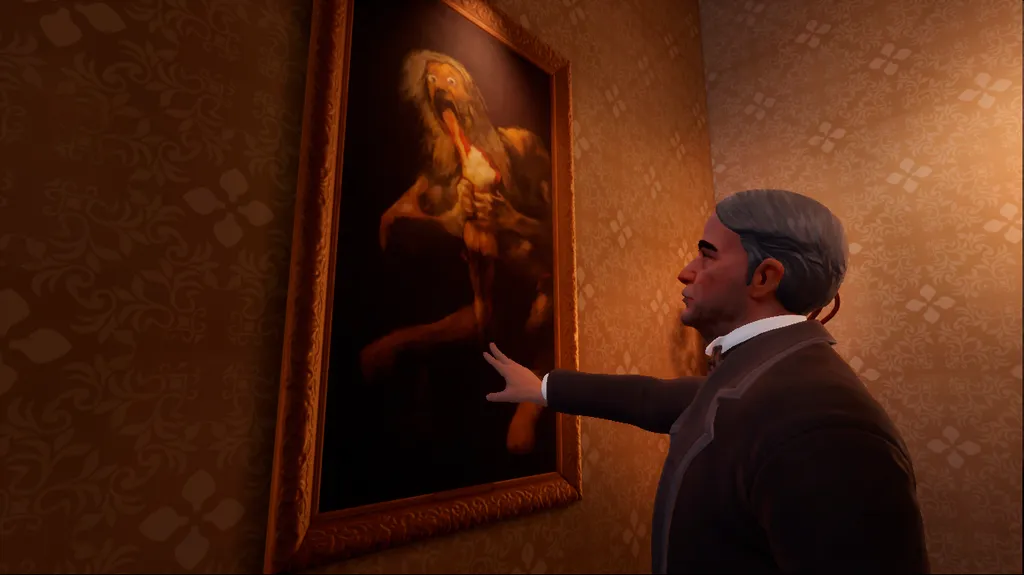For Spanish developer Tequila Works it must have been tempting to revisit past projects for its debut VR game. The familiar zombie survival thrills of Deadlight would have been an easy pick, as would the childish delights and sights of this year’s Rime. Instead, though, the studio opted for something new and in the process created a VR experience unlike anything else I’ve seen all year.
The Invisible Hours is essentially an Agatha Christie-style murder mystery in which it is up to the viewer to put the pieces together. It’s a remarkable experiment; the story unfolds over several chapters in real time, but you have the power to reverse and speed up the events while exploring a mansion-setting at your own free will. Follow one character for the first 20-minute chapter and you’ll miss a bunch of scenes in which other interactions take place, for example.
Intriguingly, the game takes several characters — some of which are real historical figures — and crafts its own fiction that throws the textbook out the window. Starting out in suitably miserable weather, you follow detective Gustaf Gustav into the island home of beloved inventor Nikola Tesla, only to find him dead at the front door. Tesla had invited several guests of wildly varying personalities to his mansion, promising the opportunity to undo past mistakes. Gustav takes the investigation into his own hands and proceeds to question the guests about the events, but behind his back their own dealings have serious repercussions.
You might argue that there’s not much for the viewer to ‘do’ in The Invisible Hours (other than finding items and newspaper clippings around the house), but it’s the strength of the game’s story, characters and impeccable writing that effortlessly pull you through it. From the first five minutes, interesting dynamics start to form between various pairings. No one in the mansion is quite what they first seem and every one of them has a fascinating backstory just begging to be uncovered. Watching the more flamboyant bounce off of the more timid makes for deeply engulfing character-driven drama.
Most impressive is the sense of a game running like clockwork, even under the anarchy of your own attention. Witness an intense confrontation in the library and out of the corner of your eye you’ll spot another character passing by and instantly wonder what they’re up to. Follow one suspicious figure around the house and they’ll walk into a heated argument between two others, falling silent and clearing the path for yet more questions. From end-to-end, development must have been a logistical nightmare, but Tequila Works pulls it off with aplomb. It keeps your brain constantly ticking and each subplot is as engaging as the last, meaning you’re never bored following through one story, while the dialogue is worthy of the classics that inspired it.
Of particular note are the many twists and turns that punctuate the story with shocking surprises. Even during moments when the characters are alone they reveal jaw dropping aspects of their personalities, backstories — even their bodies — that invite you to rewind and fast forward to learn more about this world. You won’t go five minutes without a notable revelation or unexpected event unfolding, providing plenty of highlights over the five hours it takes to catch every scene.

Indeed, while you might not have direct control over the plot, you can’t help but feel a sense of ownership in your own discoveries and the resulting pride when puzzle pieces come together and major revelations are made known to the group. Like Gustaf himself, you stalk the corridors in search of a killer, eagerly awaiting new revelations.
Occasionally things do fall out of time a bit. Each character will have a few minutes in a chapter in which they’re curiously standing around, waiting for their next interaction to conveniently take place, which shatters the illusion a bit. There are also times when calm conversations are taking place right next door to two characters shouting directly into each other’s faces, and you can’t help but wonder why no one’s noticing.
But these mere moments of oddness don’t detract from the otherwise stellar staging. This is an experience so tightly knitted together that it creates the illusion of a living, breathing world better than most. Technically, yes, it could have been done on a traditional screen, but there’s something to be said for the connections you’ll build through VR, like the intimacy of a character revealing their darkest secret alone in their room, or the sense of danger you’ll feel when standing in between a gun and its target.
The Invisible Hours is unlike anything else you’ll play or watch in VR this year; a genuinely enthralling murder mystery boldly told in an entirely new way. Its character-driven drama is near faultless not just in the dialogue and plotting but also in the superb staging and pacing that brings the world to life. It’s an experiment that pays off in spades and could well provide a template for VR storytelling to come.
The Invisible Hours launches on Oct. 10 for Oculus Rift, HTC Vive and PlayStation VR. Read our Game Review Guidelines for more information on how we arrived at this score.


























